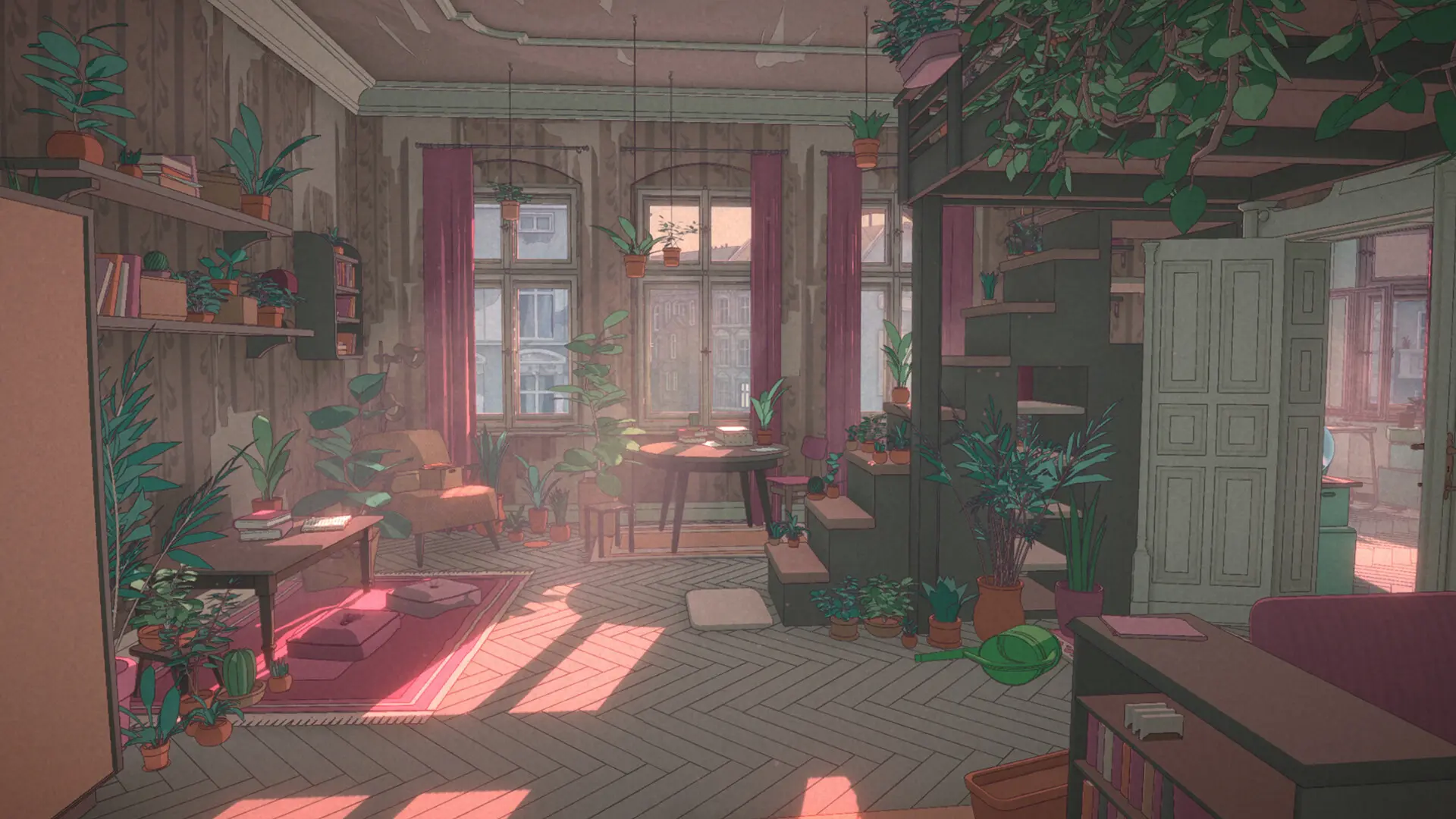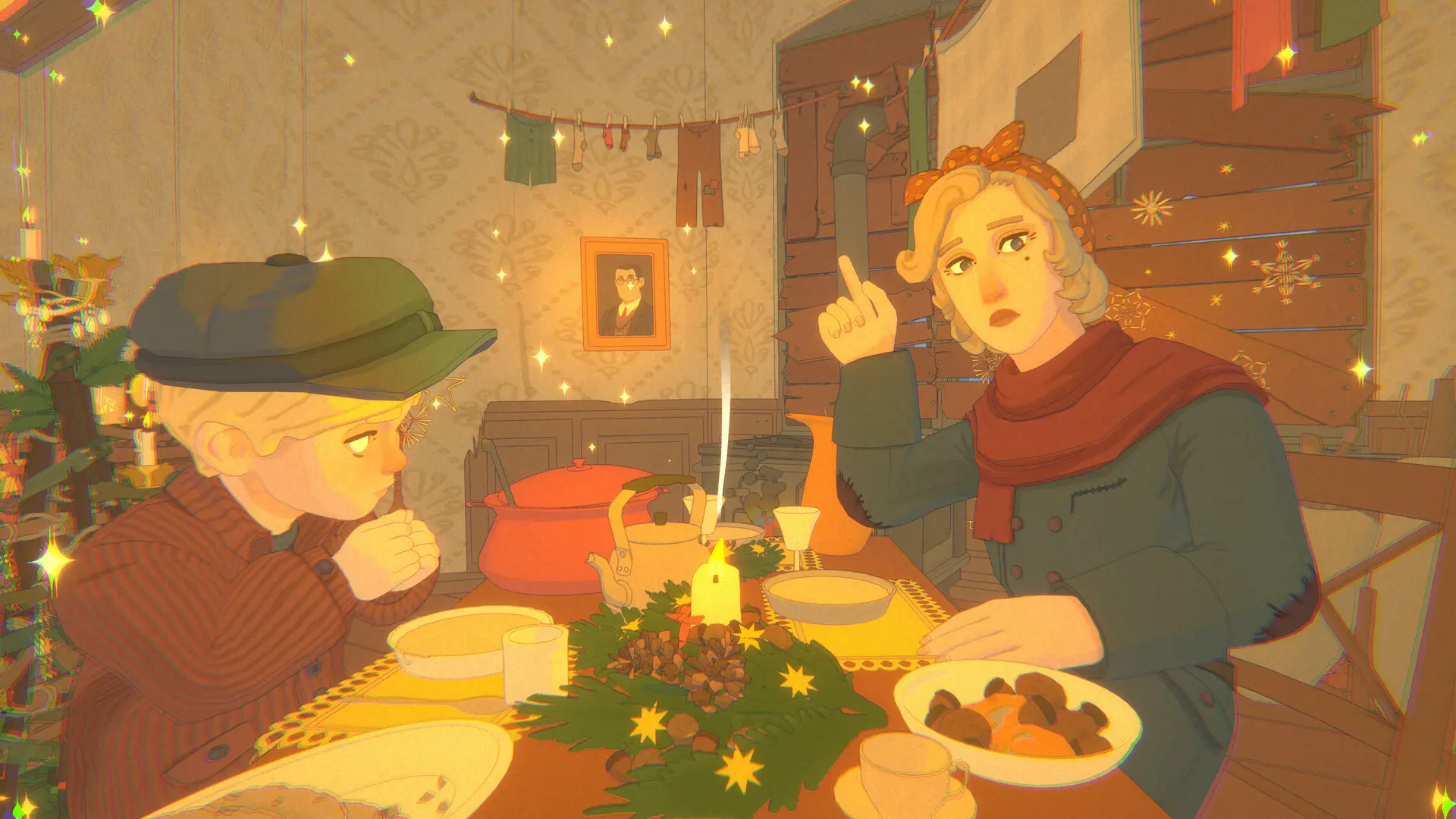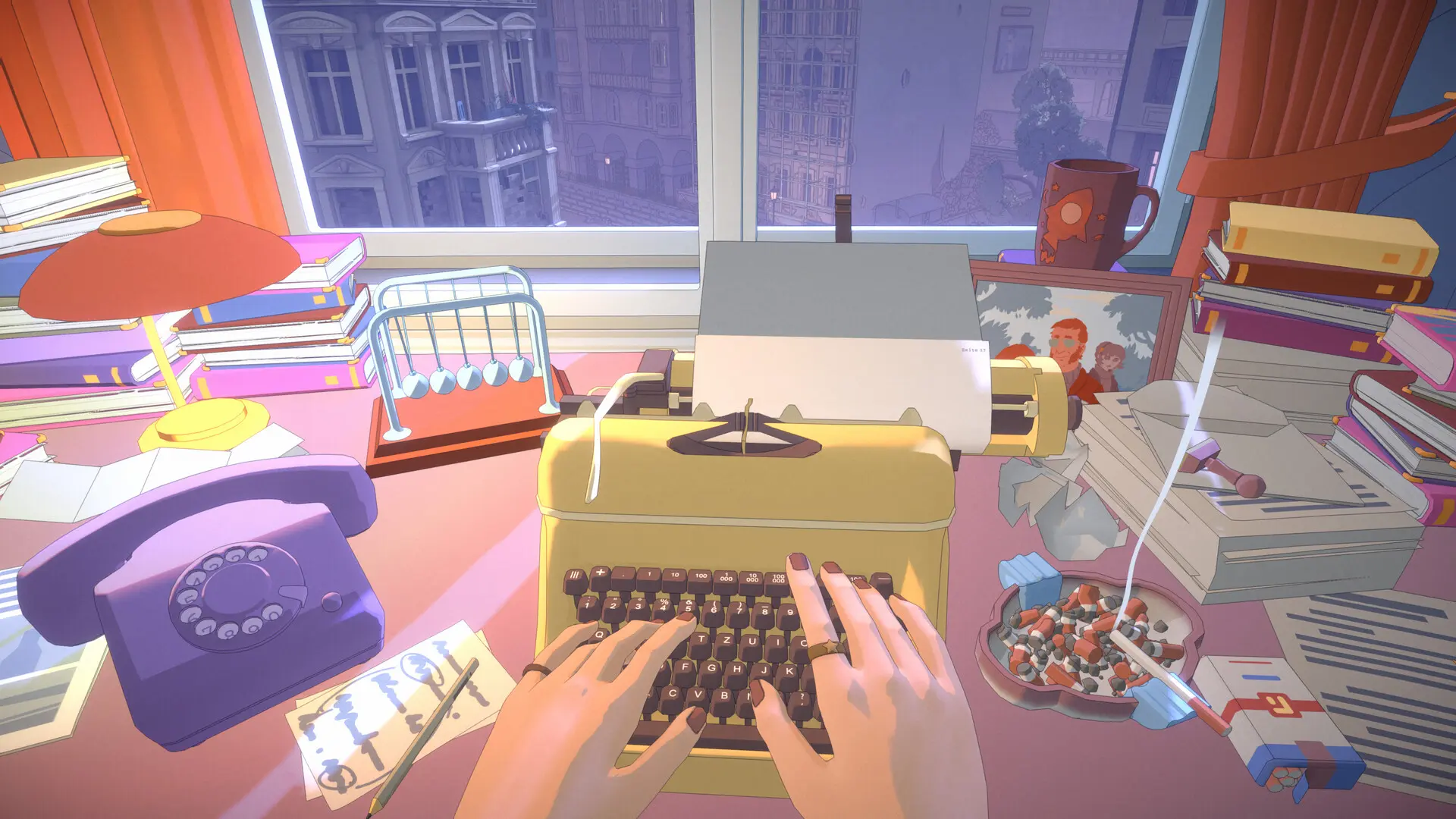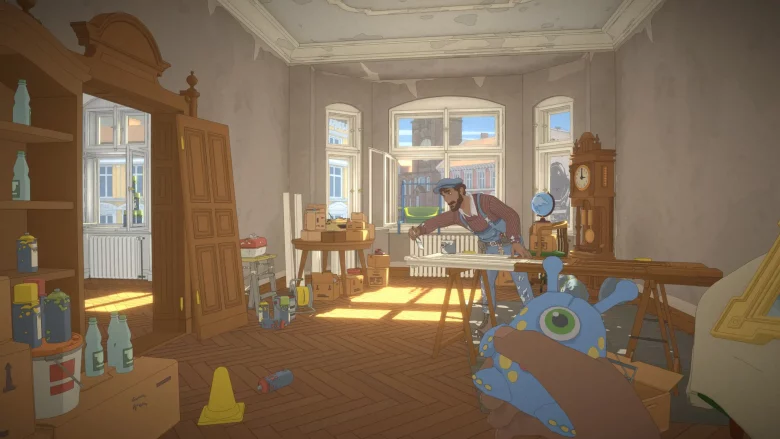One thing I love about the “walking sim” genre is their ability to tell engaging, emotive stories in just a few short hours. No need for a sweeping 50-hour epic stuffed to the brim with systems and dozens of characters and story arcs, instead they opt for smaller, more personal stories that they tell superbly in a couple of hours with a focus on soaking in the atmosphere and narrative. The Berlin Apartment is an excellent example of the genre, packing in not one but four individual stories plus a framing narrative that come together to create a touching experience that explores elements of Germany’s past you don’t often see in gaming.
The framing story is set in 2020, with you taking control of Dilara, a young girl who’s moved into a dilapidated apartment with her father. It’s up to the pair of you to repair it and as you start tearing apart the place you find remnants from the past occupiers. Although you don’t often spend too much time with these two, their relationship is really sweet. Both are well voiced and acted, and Dilara is believable as a curious and slightly bored kid trying to find the fun in the renovation project.
This apartment is the heart of the game, and a conduit for how we see Germany through different eras in its storied past. It’s a really clever way of telling these tales, as we never actually leave the walls of the apartment, at most glimpsing life outside through the windows. As Dilara explores the apartment and finds traces of previous events, the game transitions to vignettes that take us back in time and we meet those occupants.

I won’t go into too much detail as I genuinely think these are wonderful little stories, but it’s still worth highlighting how varied they are despite taking place in the same environment. Our first story goes back to 1989, while the city is still divided in two and explores a blossoming romance between green-thumbed Kolja and the mysterious Lu, who you’re separated from by the Berlin Wall. You follow their relationship as it grows through their only method of communication: notes written in paper airplanes. It’s a lovely tale, and Kolja’s an interesting character to inhabit as he’s a bit of a neurotic mess (for good reason), but seeing how he takes to the surprise relationship with Lu is great. It’s the one story that places emphasis on the world outside the apartment too, with much of the game spent looking across the street where the imposing wall serves as a reminder of the distance between the pair. It’s also a time/period in history I know very little of, and not one I’ve seen in a game before, so it served as a really interesting peek at what life might have been like back then, particularly looking at the influence of East Berlin on Kolja’s life, such as the food he eats or even the architecture within the apartment.
From there we go back to 1945. I obviously don’t need to tell anyone what was happening in Germany at that time, but what we get is a rather grim festive tale told through the eyes of a child, and one that asks some questions I didn’t expect. In the next story we go even further back to 1933, exploring life as Josef as he’s preparing to leave the apartment and the reasons why he’s moving out of the city. Considering the framing device and the twee nature of the first story, these two both surprised me at how they approached this period of German history.

Finally you’ll spend some time in 1967 as an author working on her newest novel. This was the weakest story for me, not necessarily due to the contents but more so in how it was told. You spend large chunks of the hour-long story simply tapping a button to type on a typewriter, waiting long after her narration has ended for the words to finish appearing on the screen before you can move onto the next set. It put a bit of a dampener on things and almost turned me off the story entirely before I realised it was going in a direction I hadn’t expected.
I’ve not spoken at all about gameplay until now, and that’s because there isn’t really anything to talk about. Much of your interaction with the game is extremely basic, such as moving the right stick to fold paper planes as Kolja, or exploring the apartment and looking for items to pack as Josef. I’m absolutely fine with this, I came into the experience expecting very little in terms of interaction and a heavy emphasis on storytelling, which is exactly what I got. I’d liken it to What Remains of Edith Finch, both in the way it tells its story and in terms of the level of interaction you can expect. My only minor niggle is that despite only being four short stories, it’s a little jarring moving between some that feel so sweet and others that are much heavier in tone. I still enjoyed them all, but it created a slight disconnect between them despite the shared setting.

A big part of the story is the presentation too. As mentioned with Dilara, the voice acting across the board is great, with every character feeling realistic in their dialogue. It’s a lovely looking game too, with a bright, bold aesthetic that suits the lighter stories well and creates a surprising backdrop for the darker ones.
Ultimately the focus on narrative is what will determine how you feel about the game. You’re not quite a passive passenger, but you also can’t really influence these stories in any meaningful way. For some this will probably be a turn-off, but for everyone else it’s a game worth experiencing. The Berlin Apartment tells some wonderful little stories that’ll make you feel emotions from both ends of the spectrum, and it gives a heartfelt glimpse into life in Berlin at key moments in its history.

